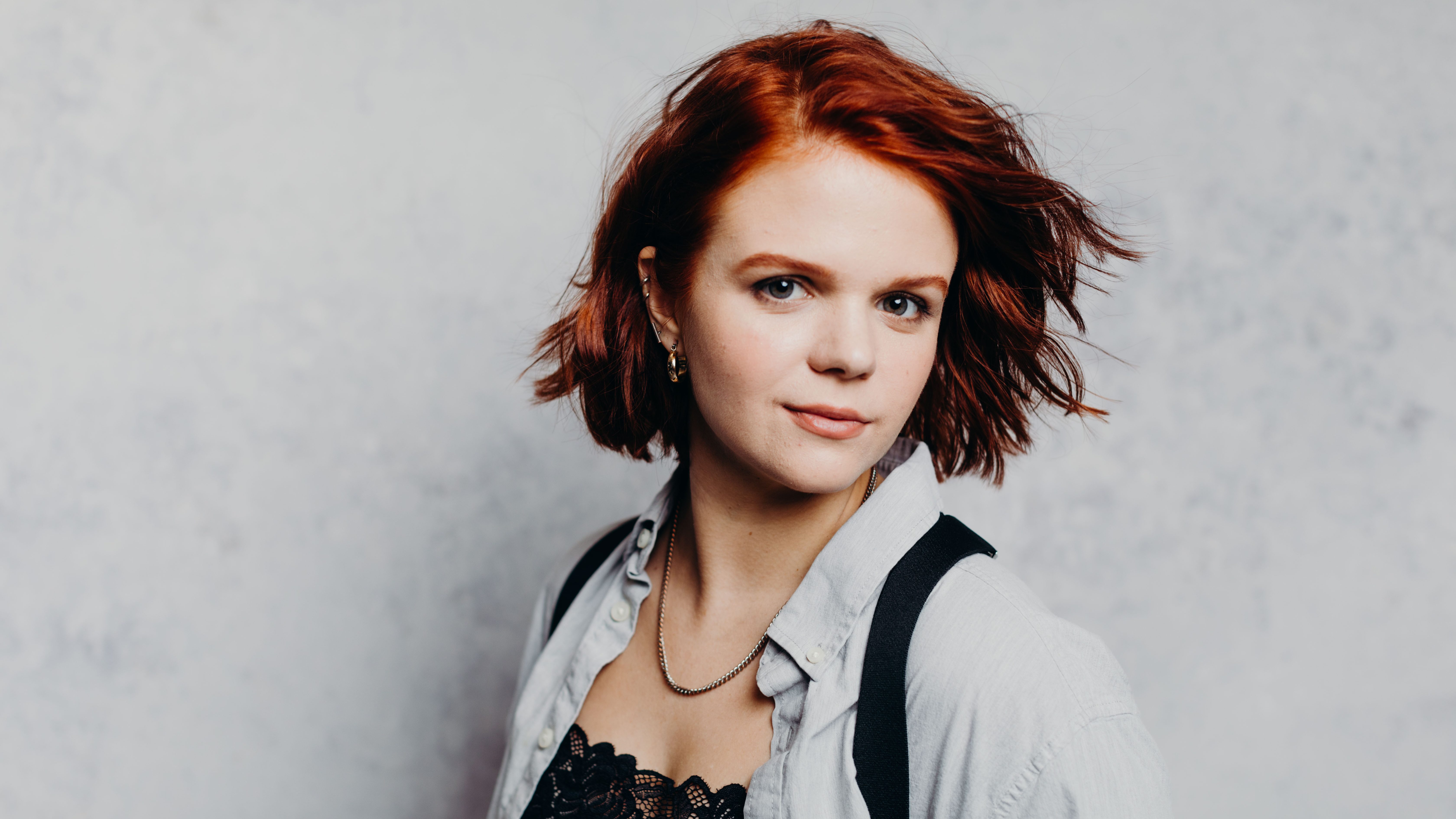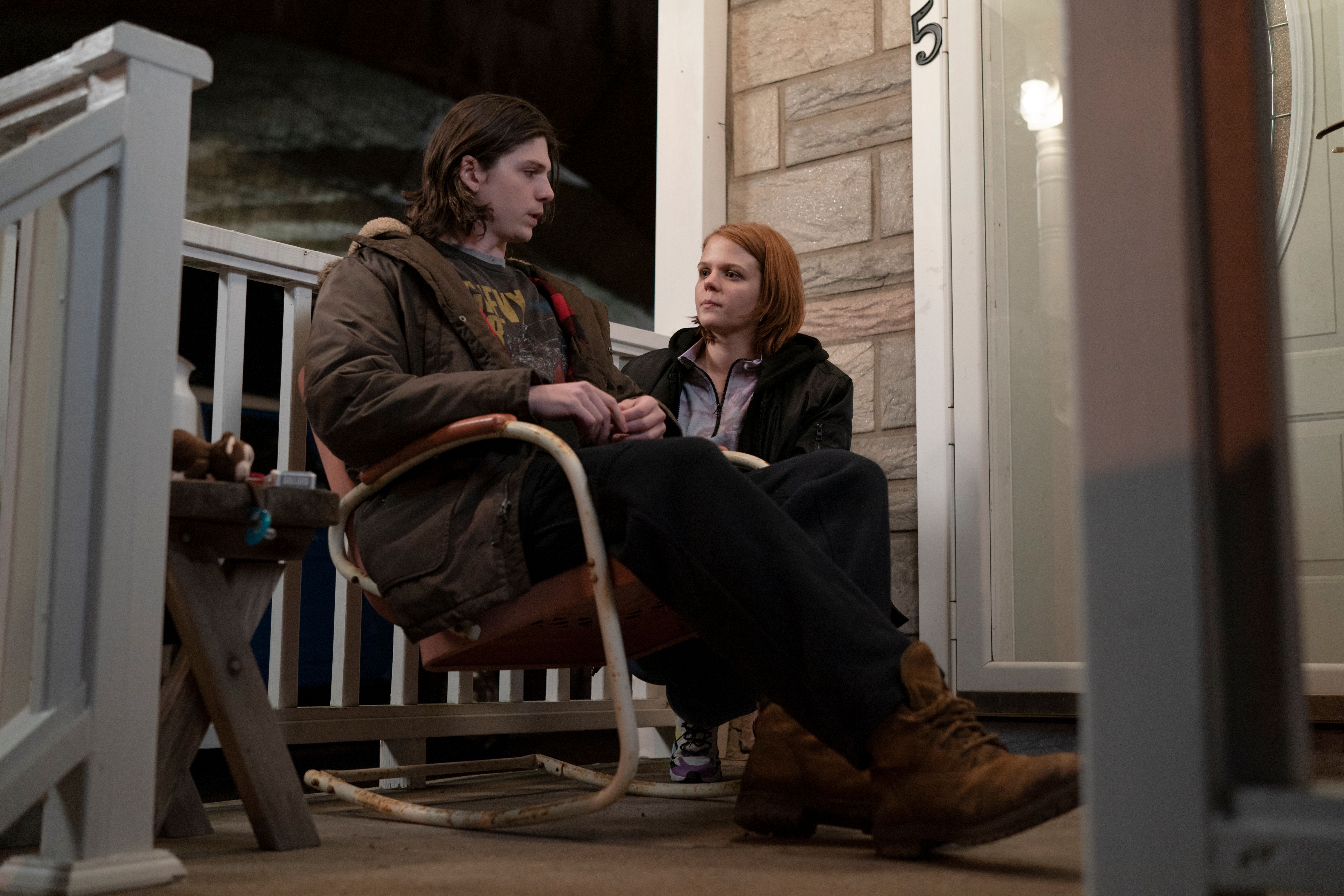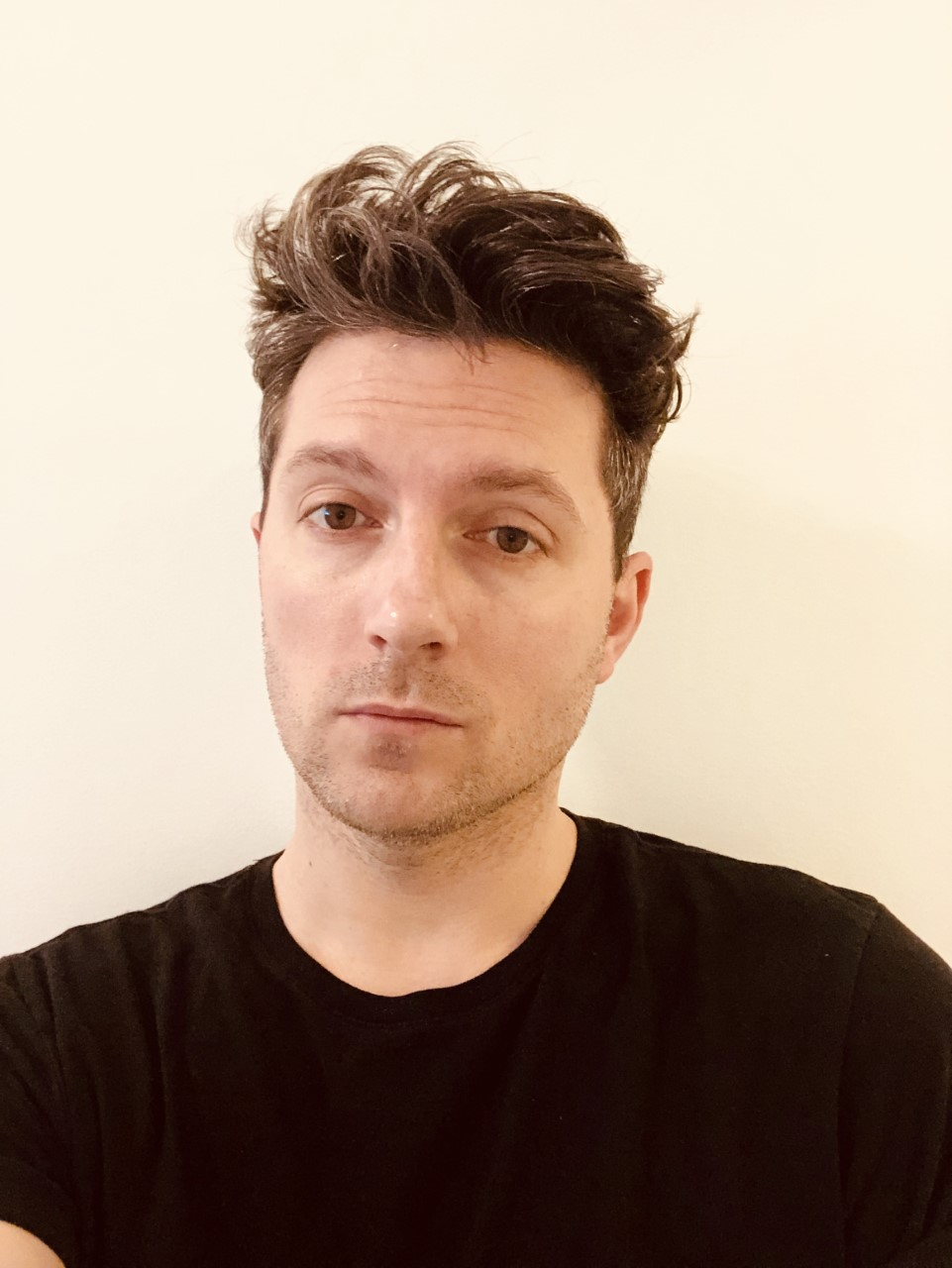

Mare of Easttown, HBO’s gritty new prestige mystery, has garnered as much praise for the lived-in feel of its fictional working-class setting as it has for its central whodunit. In such an intricate, fully realized world of vivid characters and complicated relationships, it can be hard to stand out. But from the moment she first appeared on screen in the premiere, spewing profanity and threats of violence, Mackenzie Lansing’s flame-haired teenage tough girl Brianna did just that. Initially a prime suspect in the murder of teen mom Erin (Cailee Spaeny), in recent episodes she’s had a change of heart, revealing crucial info to detective Mare Sheehan (Kate Winslet) that could help lead her to Erin’s killer.
Ahead of Sunday night’s finale, GRAZIA chatted with Lansing about what may have been behind her character’s aggression and what she thinks of the show’s portrayal of policing.
GRAZIA: What has been your experience of the show’s popularity so far? Have you engaged much with fan theories about what’s going on in the show?
Mackenzie Lansing: I do read up a little bit, because I’m so curious to see if anybody guesses it. It’s just really fascinating to see all the different theories that people came up with. When I was reading the script, I didn’t have everything right away. And some [fan theories] were things that I’d thought. I was l like, “Yup, that’s one of the trails that I went down!”
Brianna is so aggressive and just wantonly cruel when we first meet her. What do you think is behind that?
Well, I have a lot of thoughts about that. For one, her parents seem to be maybe not as present in her life as they should be. They’re around, but they’re busy. Also, she’s mirroring a lot of her dad’s behavior. There’s clearly some similarities there between their aggressive responses to things. The reason she hates Erin so much is because Erin has the kind of innocence and vulnerability that she doesn’t feel like she’s allowed to have. I just feel like she’s just been encouraged in this old school Philly family way to be tough. And that’s kind of the only way she knows how to get attention. But it’s also, I think, robbed her of a little bit of her innocence, so she despises when she sees other people who don’t have to do that.
The world of the show is so specific. I was listening to a podcast hosted by a couple of guys who grew up in outside of Philly and they specifically called out Brianna, saying, like, “everybody knows a girl like that, someone who just throws batteries at cars.” What kind of work did you do to get this character right?
I mean, I grew up in sort of a relatively small town outside of Paris. But I think what’s really interesting is small towns and blue-collar towns everywhere have a lot of similarities. That’s why the show is so universal. The idea of being tough. There usually is a town bully that everybody knows. This exists everywhere, but especially these very insular communities. I was bullied by someone very similar to Brianna. And when I was 17, I had a lot of aggression. I didn’t necessarily beat people up, but I was in the punk scene and I was very aggressive and the kind of person who was a loudmouth. So, there was kind of a thing where I felt like I had been on the receiving end of that and in that very volatile person.

She’s really shifted remarkably in the latter half of the series. What do you think brought about that change?
I think that’s who she really is. And I’m not justifying her behavior at all. But I think that underneath it all—she should absolutely pay for what she did—but she is 17 years old. And I think that she is not happy in her homelife. She clearly feels the need to prove herself to all these people that don’t matter, because I think she doesn’t think she’s smart enough to leave the town. And I think that for whatever reason—she’s probably wrong—she thinks that Dylan is her ticket out. I think that she’s in love with him. I don’t think he loves her back. And in that scene that they have on the porch, I think what happens is—well, he breaks her heart. She realizes that he doesn’t feel the same way. And then it’s like, I am putting myself at risk by lying for you, and you would never do the same for me. There’s a realization that happens in that scene, and I think when she gives up on holding out for him, she gives up on a lot of her false bravado.
So, the show is, of course, about a detective. It’s about police work, and it’s airing at a time when we are having a lot of conversations about policing in this country, and about the way it is portrayed on TV. Would you mind sharing your thoughts on the show’s portrayal of law enforcement?
Yeah. That’s a good question. We definitely have issues in this country that we need to address in terms of policing. My personal experience has been that…a lot of the times, unfortunately, the people who are kind of on the forefront…they’re not always the best equipped to deal with these high stakes situations. And I think we kind of see that in the show.
I don’t know, I think I’m still trying to figure out how I feel about how it’s being portrayed in the show. I think Kate in particular did a really amazing job, because the character that she’s playing is not all [good or all bad]. You’re seeing a character that you’re not supposed to like all the time. There is a lot of that, not showing this heroic, perfect person. And also, the ways in which it was maybe too easy for her to get away with certain things.
One of the things I’ve heard people say about the show is that the version of policing that Mare does looks a lot like social work in some ways. She provides a certain amount of care for the people she interacts with.
It’s interesting that you say that because it’s kind of like—even though this show is a representation of society as it currently is—the way she cares for her community and has links to everyone around her is kind of similar to conversations that have been happening recently about, you know, policing that is done by the community itself. The way she handles Freddie Hanlon for instance. I think that’s a great example of a situation where somebody who knows this person, who knows this town, is better equipped to go in there and not make assumptions and maybe not make a rash decision, because they’re so familiar with the community. I think that’s really important and maybe something we can take away from this show.
Do you have a sense of whether there’s a future for the show that might involve Brianna?
I have no idea! I mean, obviously, right now it’s a miniseries. I would love it if it came back, but I have no idea if that’s in the cards. I don’t even know if my character would come back if we did do that. All I can say is that if people like the show, they should make it known! They should watch it. They should talk about it.














